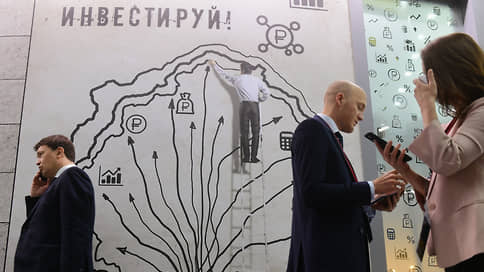Dividend mechanism offered to new foreign investors in Russia
[ad_1]

The Ministry of Finance and the Central Bank have prepared the promised relief for the payment of dividends to foreigners. The only condition for their application will be new investments in the Russian economy, while companies will be able to withdraw no more than they have invested since April 2023. The authorities draw a line between hostile and friendly non-residents not by the source countries of the funds, but by the timing of their investment: restrictions on type C accounts and the impossibility of withdrawing assets without significant losses will continue to apply for “old” investments, while potential “new” investors will demonstrate loyalty by investing in the Russian Federation despite the risks of sanctions. The new mechanism provides predictable conditions for capital investments, but the demand for it will be low, lawyers say.
The authorities delimit the conditions for the circulation of assets of non-residents in the Russian Federation. To do this, a subcommittee of the government commission for the control of foreign investment de facto removes restrictions to pay dividends to foreigners. The only condition for the application of the new regime will be the requirement for investments in the Russian economy from April 2023, the source countries can be any, but the amount of payments cannot exceed the amount of such capital investments.
The initiative was caused by the acute need of the Russian economy for capital investments to adapt it to the new conditions caused by the military operation in Ukraine after the Russian Federation lost access to the technologies and equipment of developed countries.
According to an extract from the minutes of the subcommittee, foreign companies will be able to direct investments to expand production and develop new technologies. Investments after April 1, 2023 will be taken into account. “We say: all the volumes of investments that will be made this year and later, please, can be withdrawn in the form of dividends,” said Finance Minister Anton Siluanov. The Finance Ministry explained the decision to Kommersant by increasing the attractiveness of the Russian market and its accessibility to foreign investors. “Mechanisms for making decisions on dividends will be tuned up,” they add.
Now the ability of foreign companies to withdraw invested money from the Russian Federation is limited: funds are blocked on type C accounts (mainly dividends from investments in Russian companies), their volume was estimated at the end of 2022 at 600 billion rubles. The subcommittee can individually approve the payment of dividends for the continued operation of companies in the Russian Federation, but the mechanism was not transparent.
The volume of dividend payments did not exceed 50% of the total net income of the previous year, and an analysis of dividend payments for previous periods was required. A promise to correct the mechanism followed at the RSPP congress in March. Then the general director of the Biesse group (a subsidiary of the Biesse machine tool group) Matteo Valik proposed to make the permissions for the payment of dividends more predictable.
According to lawyers, the value of the new mechanism comes down to increased transparency. “Until now, the statistics on issuing dividend permits to foreigners has not been public and uniform. In such a situation, many of them, even if they wanted to continue their activities in Russia, were forced to write off investments in Russian companies in their financial statements due to the uncertainty of the prospects,” explains B1 partner Marina Belyakova. However, the mechanism will remain limited. Natalia Abtseshko, head of the group of international projects of the VEGAS LEX law firm, considers the adjustment of the mechanism to be insufficient motivation for mass filing of applications, taking into account the sanctions risks. According to BGP Litigation partner Pavel Kondukov, companies, primarily from unfriendly jurisdictions, either do not seek to invest in Russia, or are afraid because of the risks of sanctions. Companies from friendly countries are ready to invest in the Russian economy, but are also afraid of secondary sanctions. “Companies are resorting to complex organizational structures to mitigate these kinds of risks,” he adds.
BIRCH LEGAL’s managing lawyer Alexander Rostovsky notes that although many foreign companies have continued to operate in Russia, their exit from the Russian market is difficult and sometimes impossible due to restrictions on the sale of Russian assets. “Even taking into account the preservation of their presence in the Russian market, foreigners, if not completely abandoned new investments in Russian business, then significantly reduced them,” he says.
Daniil Nametkin, director of the CSR Center for Investment Analysis, recalls that more than half of foreign direct investment in the Russian Federation until recently was Russian capital passing through third countries, including to optimize taxation. In 2022, FDI declined to negative values (minus $18.7 billion), which indicates a decrease in the attractiveness of the Russian economy for external investors.
“In the context of increased sanctions risks, even a complete liberalization of the payment of dividends to non-residents would have a limited effect on investments,” the expert believes.
Forward Legal lawyer Yevgeny Zubkov points out that investors can be stopped by the fact that the amount of dividends that can be withdrawn abroad is limited by the volume of investments in the Russian Federation. This can be perceived as a lack of opportunity to make a profit.
The decision of the subcommittee at this stage should be regarded as a watershed between not so much jurisdictions as hostile and friendly non-residents. In the event that investors choose not to increase risks and not invest additionally in the Russian Federation, funds will continue to accumulate in C accounts until political decisions are made at the international level. The new regime for “loyal foreigners” is likely to continue to develop depending on its demand and dialogues with investors.
[ad_2]
Source link






